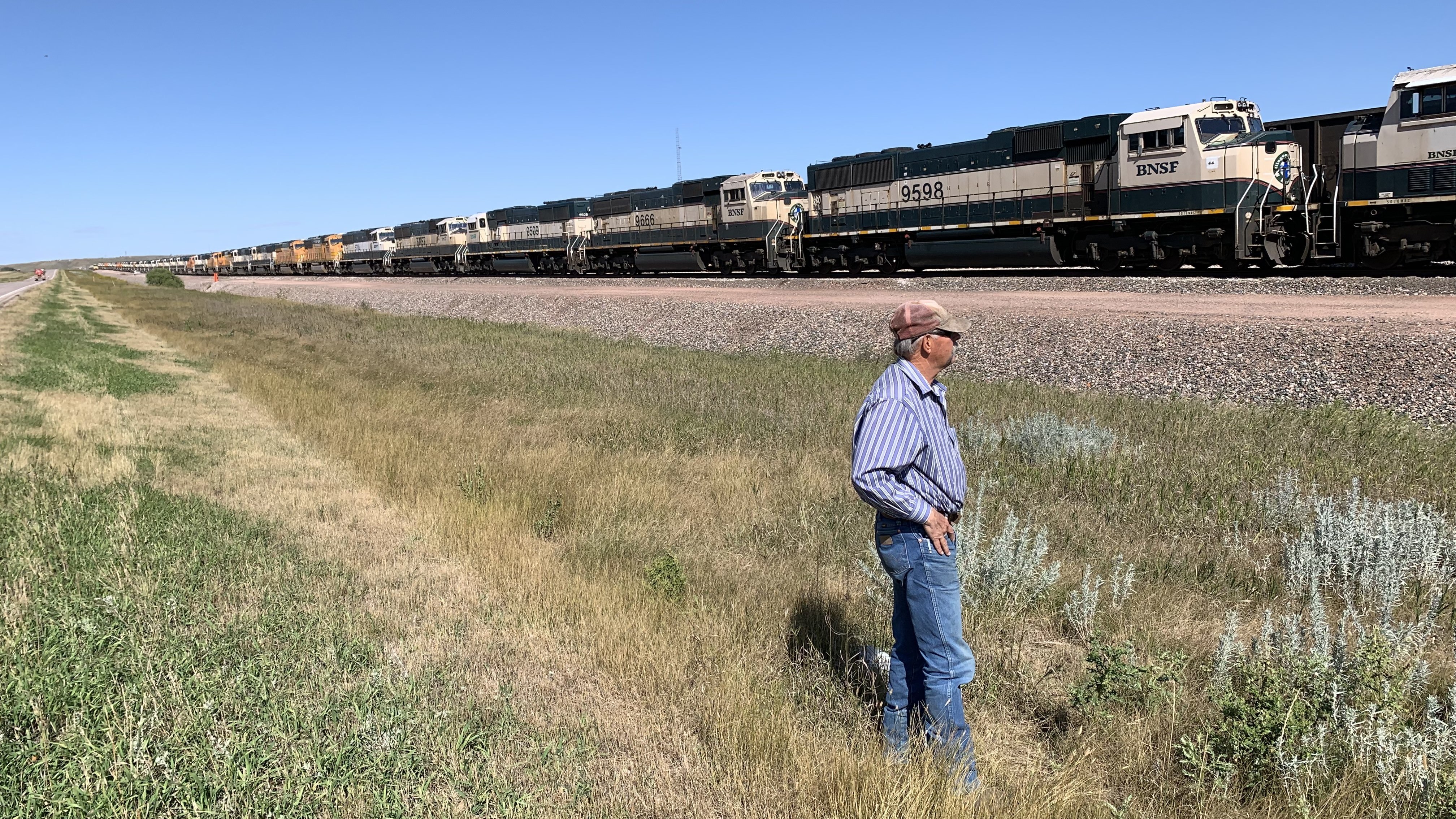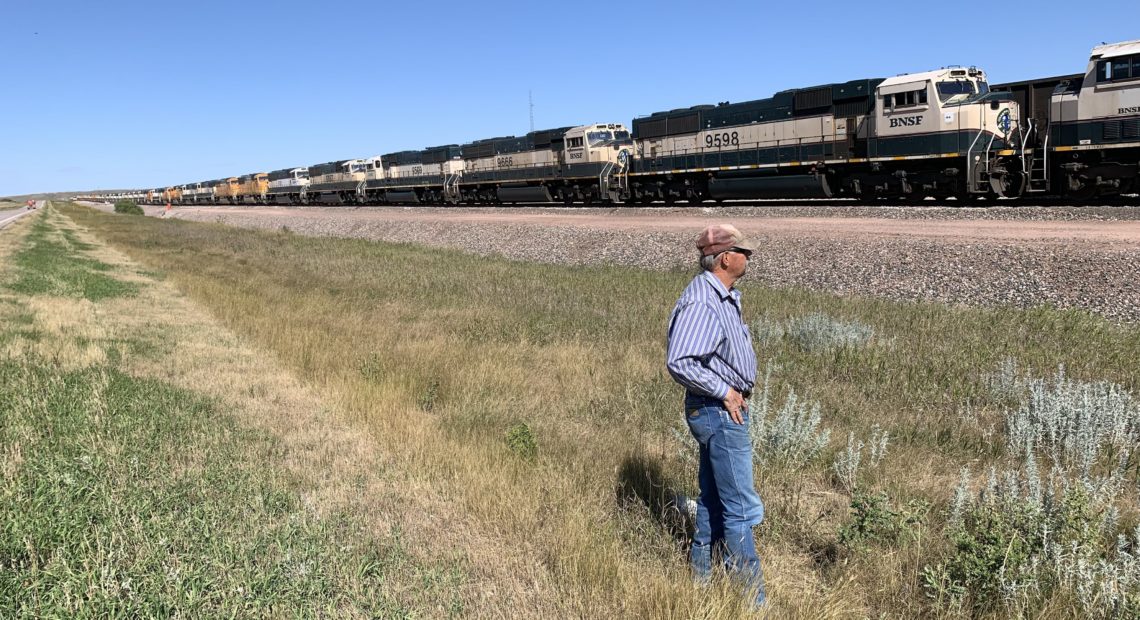
‘It’s The Stone Age Of Fossil Fuels’: Coal Bankruptcy Tests Gillette And Mining Across The West
Listen
BY COOPER MCKIM
Two months ago, coal company Blackjewel declared bankruptcy, putting hundreds of miners in Wyoming and across Appalachia out of work. Miners affected by the bankruptcy in Kentucky have been camping out on a train track for six weeks in protest.
Blackjewel is the third coal company in Wyoming to declare bankruptcy this year, but this one is more dramatic: paychecks went unpaid, a CEO was pushed out and, most importantly, the gates of the mines in Gillette, Wyo., which calls itself the energy capital of the U.S., were locked, stopping coal production. Miners say that just doesn’t happen.
The move left about 600 people out of work in Gillette. In two months, only 25% of workers have found jobs, according to local management.
Until two months ago, Darlene Rea worked in Blackjewel’s warehouse. She received freight, wrote invoices and found parts. Since the coal company’s abrupt bankruptcy, she’s been stuck looking for work.
“Every day, every day, every day, you keep waiting and wondering if somebody is going to call you up. And then there’s nothing,” Rea says, slapping down a sheet of paper listing all the places she’s applied for jobs.
“Peabody Energy, Cloud Peak, Campbell County Hospital, Walmart, Pegasus,” she says.
Next to many is the word “rejection.”
Rea has a medically retired husband and a mortgage. Worst comes to worst, they might have to sell the house and move — a tough option with grandkids nearby. Rea says her positivity is fading with each passing day of a particularly prolonged bankruptcy.
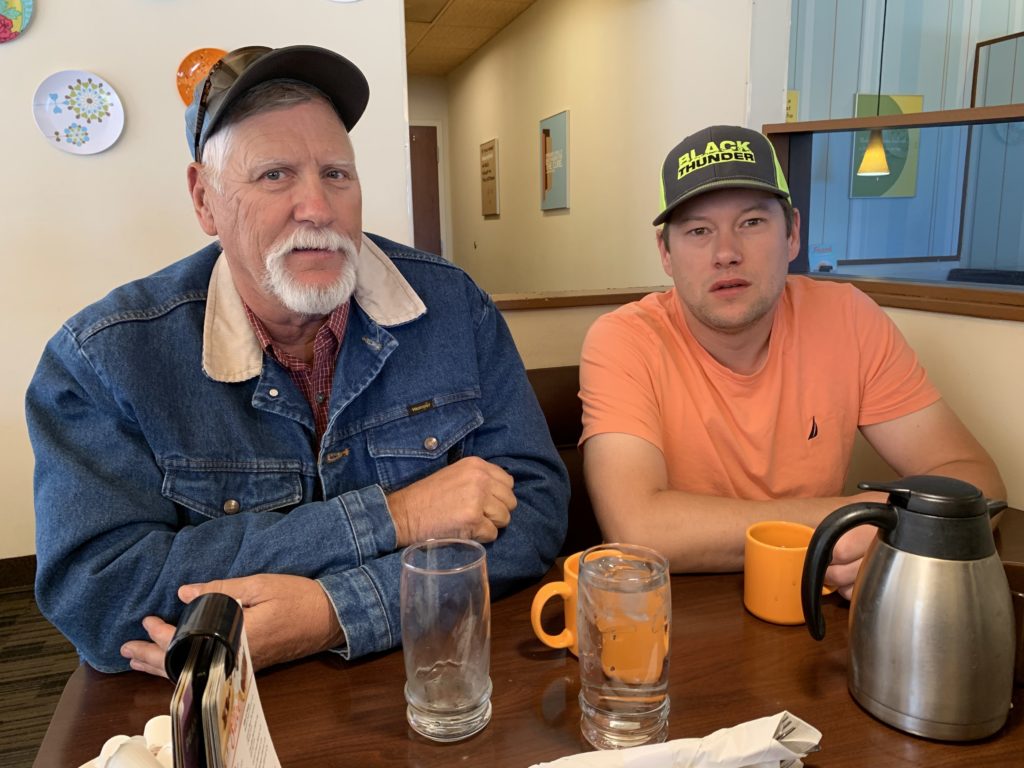
Ty Cordingly and his dad at a local Gillette diner. He’s seen coworkers leave the state for jobs and thinks Wyoming relies too much on the energy industry. CREDIT: Cooper McKim/Wyoming Public Media
“I didn’t think it was going to be this long. Seriously.”
Ty Cordingly is one of the few who managed to land a new job.
“I got some co-workers that had to go to Nevada, Montana, South Carolina, you know, Arizona,” he said. “When there’s not very many jobs — our entire community is based around the energy industry.”
Gillette isn’t just losing people — it’s losing money, too. Blackjewel owes the county $37 million — funds that support not only local services but state education. It’s left local vendors unpaid. The company even owes the federal government more than $60 million. Cordingly thinks Wyoming relies too much on energy.
“This isn’t a story about one individual or one generation. The state has always just counted on us being the cash cow for the state of Wyoming and they didn’t have to do any planning because the oil kept flowing and the trains kept rolling out with coal on it,” he says.
Over the past year, Campbell County produced the most tax revenue for the state: 15% of it. Oil and gas are certainly still flowing, but coal isn’t having as much luck.
Driving to his regular diner, retired coal miner Bill Fortner says, “It’s the Stone Age of fossil fuels, coal is. It’s done.”
His ancestors homesteaded here four generations ago. Fortner is a staunch Republican who has mined coal for much of his life. He says President Trump has been the best shot coal has had, but it hasn’t been enough. Production in the Powder River Basin has declined by one-third in the past decade. Fortner says the area needs to adapt, and quickly.
“Otherwise, we’re going to be sitting here looking at another ghost town,” he said.
Local leaders say Gillette is already taking steps to diversify its economy. While that’s underway, Wyoming Gov. Mark Gordon says there may be some tight financial years ahead.
The future is still uncertain for Blackjewel’s two mines. The former owner says it plans to buy them back but would only keep them open for the short term.
9(MDAyOTk4OTc0MDEyNzcxNDIzMTZjM2E3Zg004))
Related Stories:
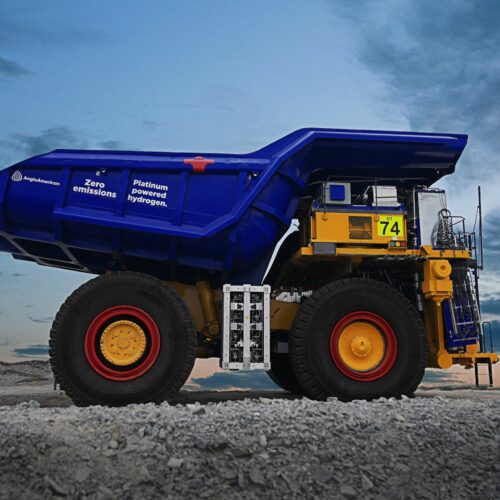
Battery-powered mining trucks to see test run in Lewis County
The site of the last coal-fired power plant in Washington state will soon be home to proving grounds for a carbon-emissions free mining truck.
The truck is a battery and hydrogen fuel cell powered vehicle, developed by Seattle-based First Mode, and it’s the largest emissions free vehicle in the world. Chris Voorhees, co-founder and chief product and technology officer at First Mode, said they’ve developed the technology to focus on decarbonizing the industry that provides the products that fuel our daily lives. Unlike other cleantech engineering focused on the consumer-end products like electric vehicles and solar panels, Voorhees said First Mode is looking at the opposite end of the supply chain.
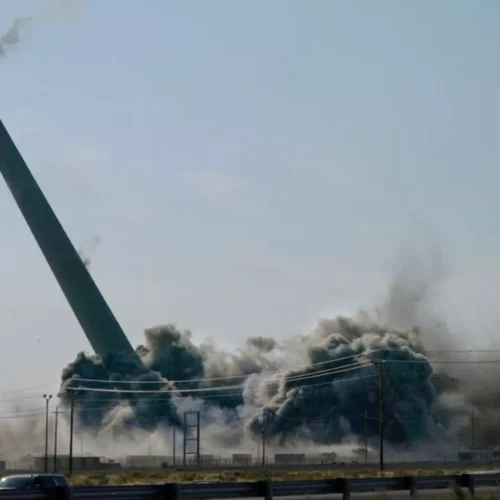
Explosive Demolition Of Boardman Coal Plant Underscores End Of Coal-Fired Electric Generation In Oregon
A demolition contractor on Thursday imploded the towering smokestack and 19-story boiler building at Portland General Electric’s shuttered coal-fired power plant near Boardman, bringing a symbolic close to the era of coal-fired power generation in Oregon. Imported electricity generated from coal still flows through transmission wires across the Pacific Northwest, but that looks to be winding down soon, too.
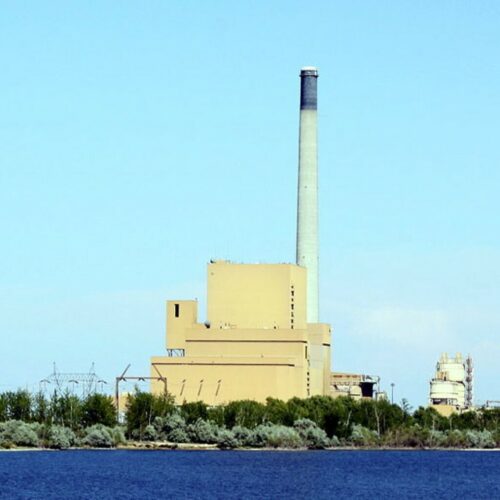
Northwest Energy Generation Continues To Green Up
Coal plant closures in the Northwest and an increase in natural gas generation meant fewer heat-trapping carbon dioxide emissions recently contributed to climate change, according to new data from the Northwest Power and Conservation Council.

